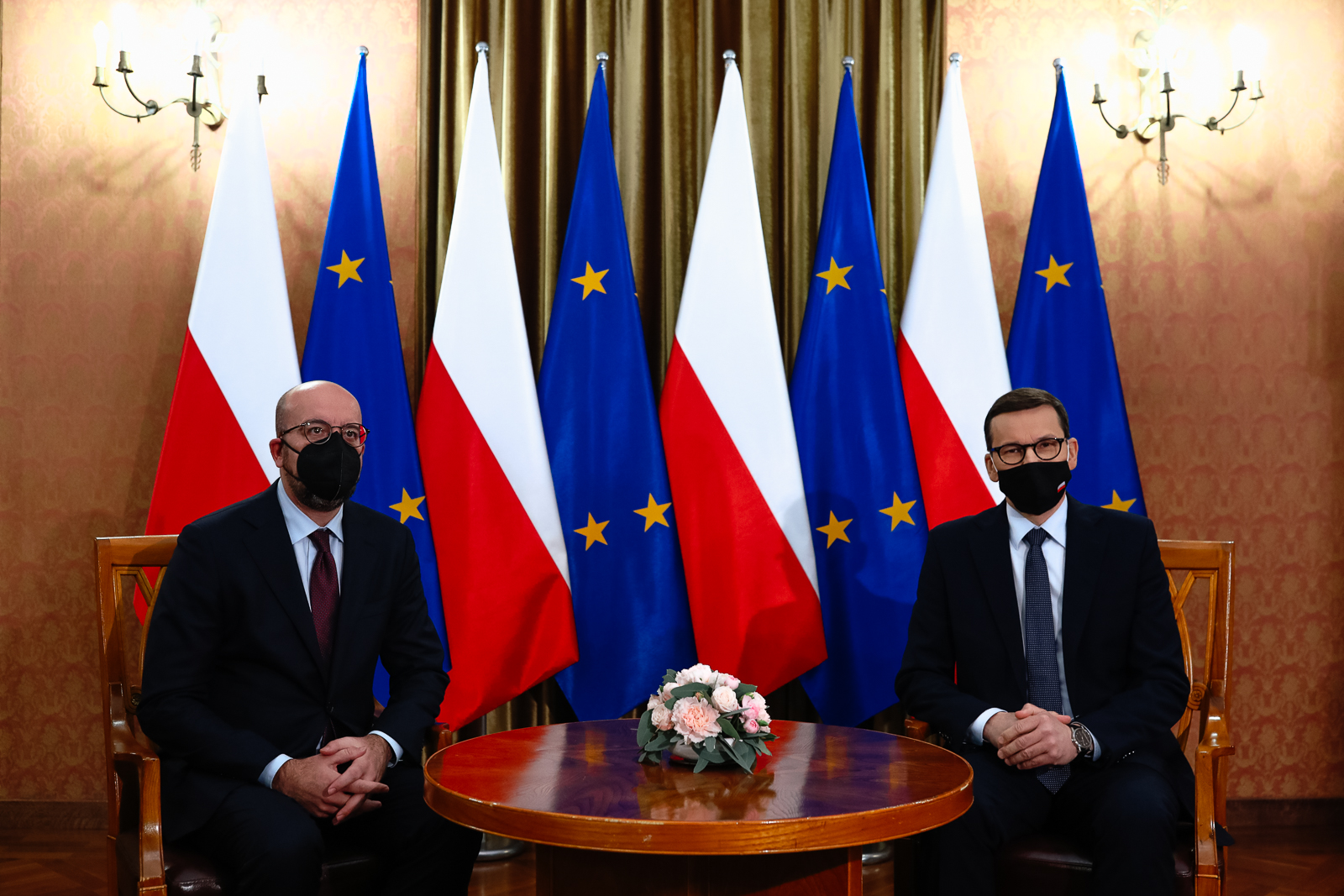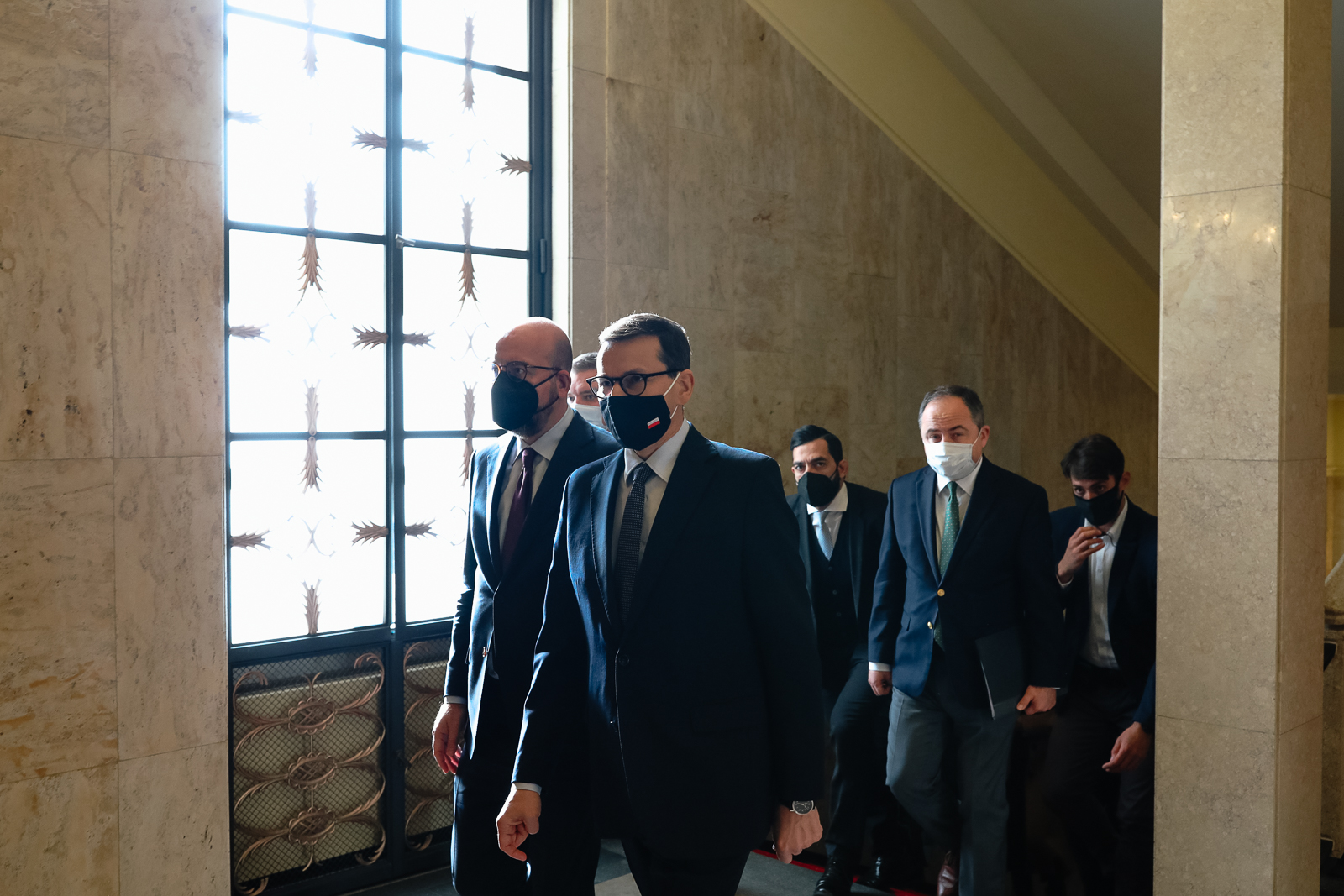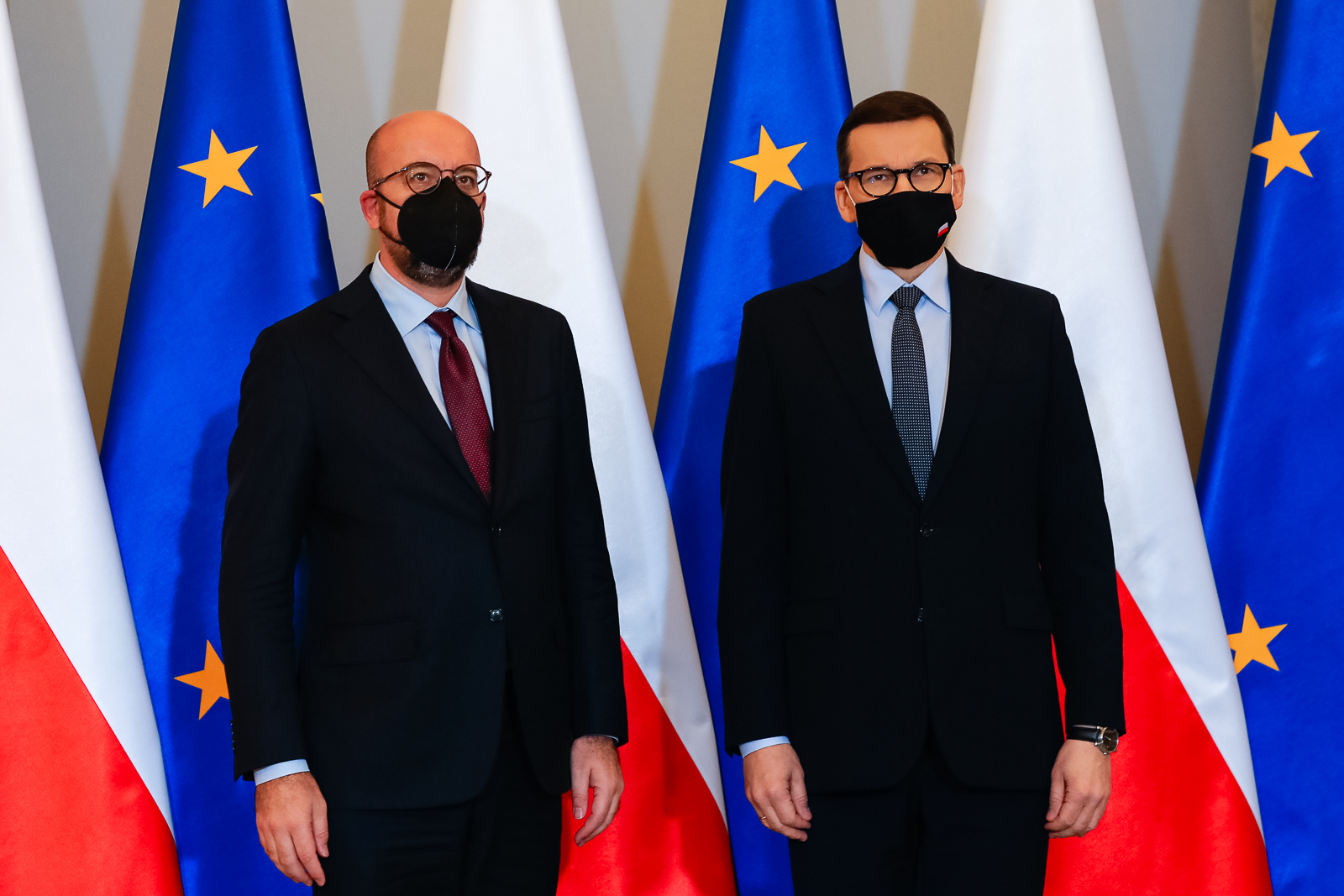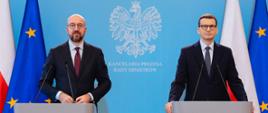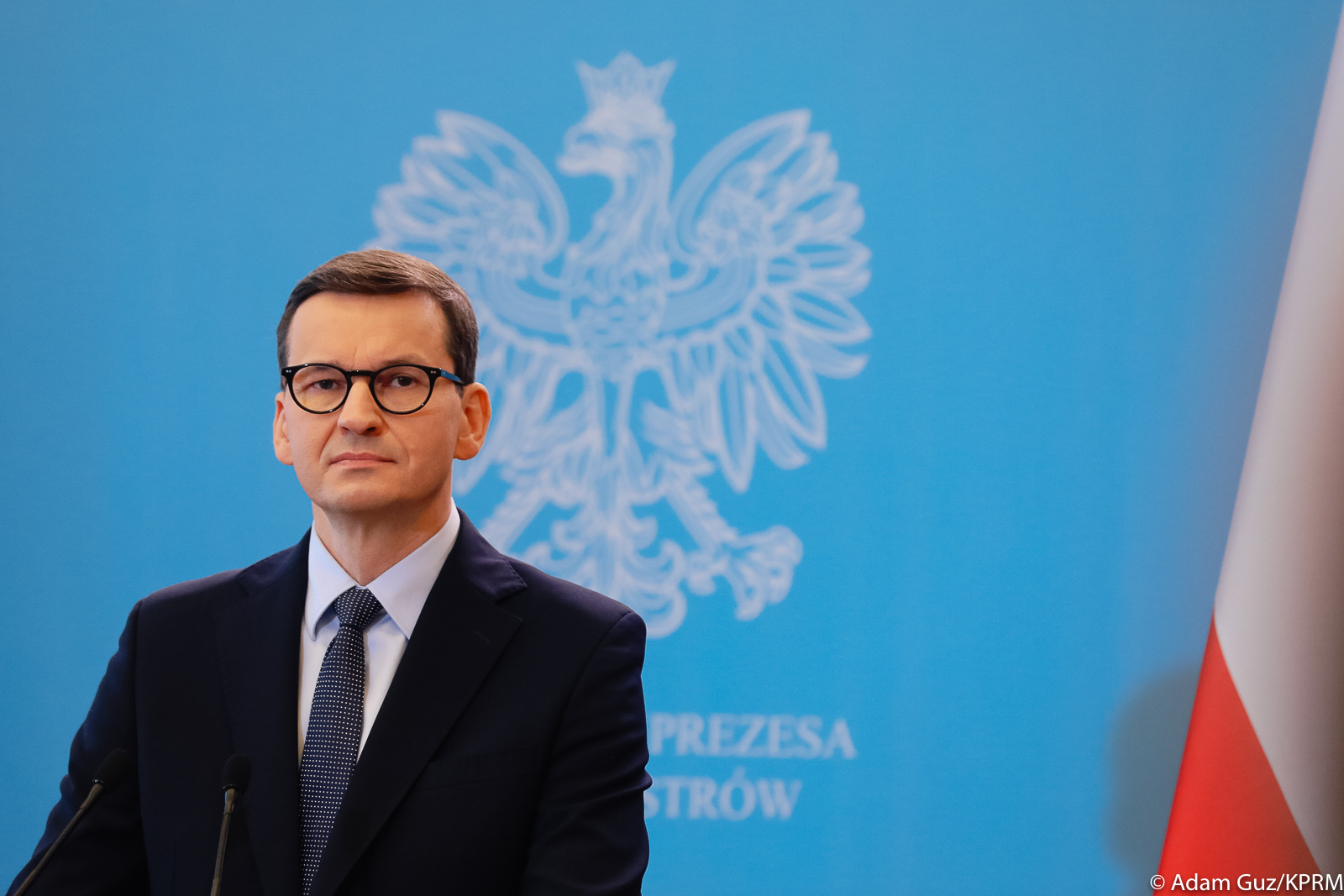Prime Minister after meeting with President of the European Council: We need to work on common solutions to keep Poland and EU safe
10.11.2021
The main topic of the talks was the situation on the Polish-Belarusian border. The meeting is part of consultations conducted by Poland with Member States and European Union institutions in the context of the hybrid threat from Belarus. The situation on the Polish-Belarusian border continues to be complicated. In recent days, there has been an escalation of attempts to illegally cross the eastern border of our country, which is also the eastern frontier of the EU. The Prime Minister stressed that this crisis does not only concern Poland. It aims to exert pressure and destabilise the entire EU.

Common solutions in the context of the migration crisis are necessary to keep Poland and the EU safe.
– We must work out common solutions so that Poland and the EU continue to be – said Prime Minister, at the same time, thanking for the solidarity expressed in connection with the situation on the external eastern border of the EU with Belarus. He stressed that the events of the last few days had been a test for Poland and Europe. – We are aware that these risks may escalate, and the situation may become worse – he continued.
As an EU border state, Poland expects above all diplomatic support from the Member States and EU institutions. This applies in particular to adopting another package of sanctions against Belarus and unequivocal measures to block flights to Minsk.
– This is a brutal, hybrid, violent and undignified attack. In the face of such an attack, we must act firmly, with unity and on the basis of our fundamental values – said European Council President Charles Michel after the meeting with Prime Minister Mateusz Morawiecki.
The European Council President stressed that the European Council committed the European Commission to propose "all possible measures to meet the challenges we face." He also informed of the launch of a diplomatic initiative targeting migrants' countries of origin and transit countries.
European Union stands in solidarity with Poland
– I spoke with the President of the European Commission, Ursula von der Leyen, and today we had a good conversation with the President of the European Council, Charles Michel. I talk every day with prime ministers of various countries who are aware of the growing risk – said Prime Minister. President of the European Council Charles Michel called on the Belarusian authorities to respect international law and stressed that the EU would not accept any attempts to instrumentalise migrants for political purposes. After today's meeting with the Prime Minister, he announced that talks are already underway among the Member States on sanctions against Belarus. We want to coordinate with the Member States to make the best choices and identify the best tools – he continued. He also stressed the need to stop hybrid attacks not only against Poland but also against the entire EU.
Meanwhile, President of the European Commission Ursula von der Leyen, after talking to Prime Ministers of Poland, Lithuania and Latvia, in a statement issued, called on the Member States to finally approve an extended sanctions regime against the Belarusian authorities responsible for this hybrid attack.
Poland ensures the proper protection of the EU's external border with Belarus
– By defending our borders, we are fulfilling our alliance commitments. We count on our allies to do the same – continued Prime Minister.
In eastern Poland, 15,000 Border Guard officers and 13,000 soldiers guard our territory. Under the direction of Prime Minister Jarosław Kaczyński, Chairperson of the Committee of the Council of Ministers for National Security and Defence Affairs, the Security Committee decided as early as June to build appropriate installations. These measures were aimed at preventive security.
On 2 November 2021, the President signed the Act on the Construction of State Border Protection Installations. The purpose of the law is to define the rules for implementing the construction of the state border security system, which is also the external border of the European Union. In light of the migration pressure on the Polish-Belarusian frontier, the Act proposes legal mechanisms that will enable the construction of the protective barrier in the shortest possible time.

